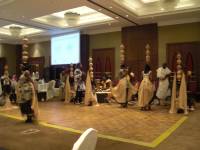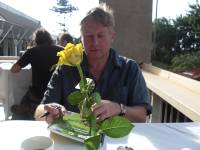Guru Geri in Uganda
2009 in May for the first time in Uganda, with Klaudia. The 1st African Organic Conference took place in Kampala. A total of 14 days in the country. Besides one week in Kampala in Sheraton we spent some days in Jingi, Fort Portal, Queen Elisabeth II National Park and Entebbe. The country is typical Africa: lots of agriculture (subsistence) in a hilly landscape, friendly people and poor (one of the 50 poorest countries in the world according to HDI). In 2009, it has the highest number of organic farms in the world (44,000 group-certified farms), albeit with only a small area. Products are mainly for export (to DE: dried fruits such as pineapple, bananas, papaya, etc.). (Eco-)colonial dependencies are not to be dismissed, raw materials of agricultural origin are most important. That's how I named it in my lecture. Everything from one (first world) hand.
The national parks are not as beautiful and animal-rich as Kenya, Tanzania, Botswana etc.. It is a landlocked country, which has been heavily plundered by Idi Amin and is characterized by typical unmotivated poverty and poor infrastructure. Agriculture is "modern" only in a few exceptions: tea, coffee and some banana plantations. Have visited the source of the Nile (Jingi), the Queens Elisabeth National Park and Fort Portal.
In 2019 I was 4 days in Kampala for a Knowledge Centre Organic Agriculture (which I have initiated) and with an exiting excursion to Mekerere University with insect and earth worm food research, and the lovely and impactful farmers training school of Kulika in Central Uganda. Spend a good day at Victoria Lake Mercure hotel.
2022 I spend 14 days in Uganda, in Kampala and the West close to the border of the Kongo, to assess the data for my "LandLessFood" project on selected farms (maize straw and harvest yields). I was with Enno Sonntag and Daniel Grimm (PhD-students) visiting our 4 trainees at their place (farms). The country is becoming difficult in the future due to population growth and land scarcity. 380 qm crop land per person have been calculated for 2100. I do not know how this shall be possible.
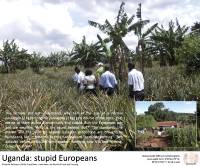
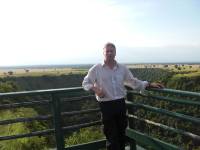
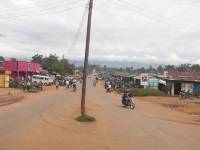
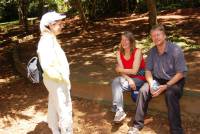
.jpg/picture-200?_=16c1a18b4bf)
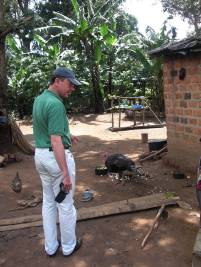
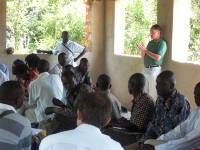
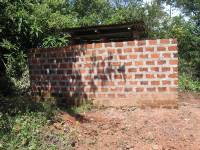
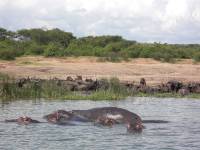
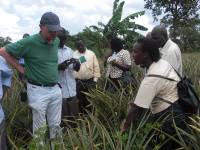
.jpg/picture-200?_=16c1a1892d5)
.jpg/picture-200?_=16c1a18a032)
